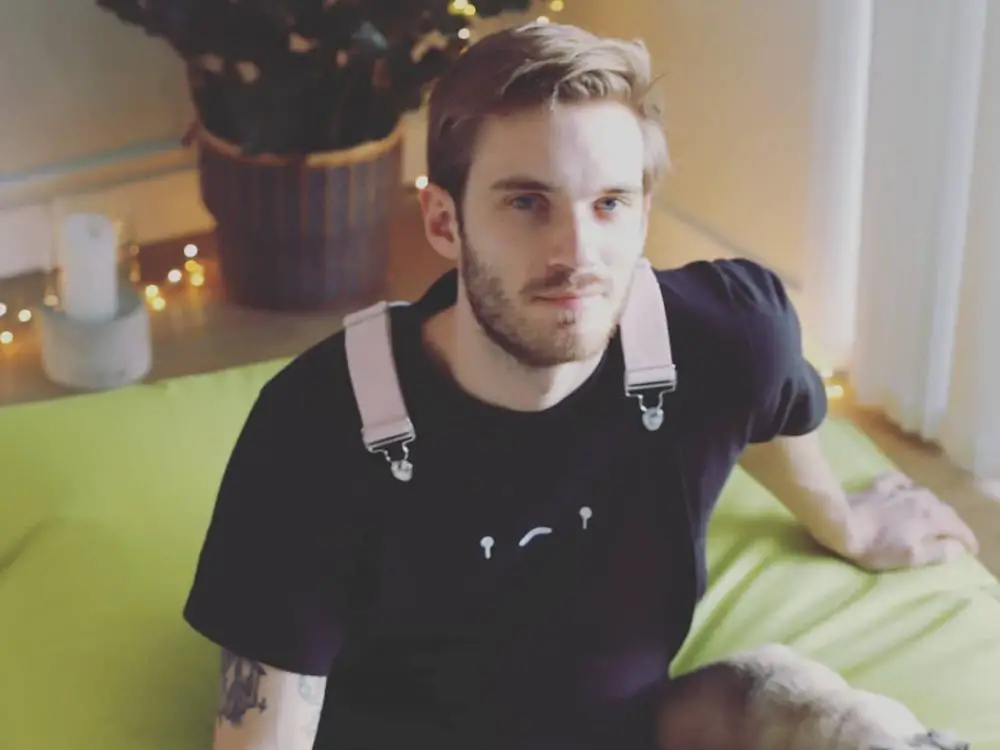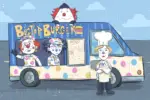Well, Felix Kjellberg, more commonly known by the pseudonym PewDiePie, is stirring up controversy in the news again, despite not doing anything wrong. The massively popular YouTube star, now with 104 million subscribers, recently signed a deal with YouTube stating that he would livestream exclusively on the platform, as opposed to Twitch or Dlive, where he was previously streaming. Considering that YouTube is Kjellberg’s home platform, where he hit it big as a creator, the deal seems like a natural extension of their already-existing relationship.
Yet, if you read the headlines of some articles related to the deal, you would think Kjellberg’s friendship with YouTube was the end of the world as we know it. “YouTube and Pewdiepie Can’t Afford to Quit Each Other” reads the headline of Motherboard’s searing story about the deal, in which writer Emanuel Maiberg recounts all of the YouTuber’s many past controversies in excruciating detail. Gene Park, for The Washington Post, opens his article with a reference to “[PewDiePie’s] use of Nazi jokes on his channel,” going on to say, “Now, it appears to be water under the bridge.”
Yes, actually, it is in fact water under the bridge. Kjellberg has apologized and re-apologized for all the controversies these articles could wish to cite, and it says something that he’s been able to retain such a massive audience despite the virulent cancel culture that has often destroyed other internet personalities with scandals of this size. Kjellberg’s audience trusts him — they believe that despite all of the lurid media coverage, he’s essentially a good person.
PewDiePie is one of the more consistent personalities on YouTube, usually cracking ironic and self-aware jokes, but balancing that with a small dose of his genuine thoughts and feelings. For many of his followers, Kjellberg doesn’t feel like a traditional, distant and unreachable celebrity with a carefully cultivated personality. He’s just a normal human, talking to a camera, bumbling around and making mistakes like the rest of us. It’s true that he may not be the best role model for some of his younger audience members, but that doesn’t mean that he deserves to be mercilessly slammed by the media whenever he makes a newsworthy decision.
By no means do I intend to attack the platforms and reporters who are publishing these stories. The job of a journalist is difficult and important, and I have a deep respect for all those who devote their life to such a cause. However, I do think because many reporters do not regularly watch YouTube themselves, they perhaps don’t quite understand the platform and its myriad creators — including PewDiePie.
YouTube is a microcosm unto itself, with an insular culture that influences all who interact with it. The strong personalities and anti-PC beliefs of many YouTubers attract young people who are suspicious of traditional sources of information and entertainment. In a way, the very thing that makes PewDiePie so repulsive to news outlets is the same thing that attracts much of his user base. He speaks his mind, clearly and, most of the time, without apology. When so many politicians and celebrities cloak their words in a veil of acceptable rhetoric, it’s refreshing to hear someone lay out their views so bluntly.
It’s clear that the very existence of YouTube threatens respectable news sources, with creators like Philip DeFranco disseminating news in digestible video format from a seemingly sensible and trustworthy personality. Even Kjellberg took a stab at reporting — with plenty of satire, of course — with his Pew News videos. Younger audiences with shorter attention spans and partiality to particular specific personalities, rather than unbiased reporting, are naturally going to gravitate toward this content. This is more accessible than delving into the unfamiliar world of journalism, much of which is hidden behind a pay wall. For newspapers and magazines that are already struggling to go digital, the more appealing content offered for free by YouTube could strike a massive blow.
This threat, combined with the misunderstanding of the appeal of YouTube, would of course create an environment in which many news outlets are downright unfriendly to creators and their platform., News outlets take advantage of the actions of a few to villainize the many, and PewDiePie is their poster child. His edgy humor, his gamer-boy persona, his rebellion against social norms — it’s all too easy to take out of context and too difficult to forgive and forget.
For years, YouTube has attempted to appease reporters and their audiences by distancing itself from any creators who gain negative attention. After Kjellberg’s first big controversy, YouTube began turning away from individuals creating content, suppressing and demonetizing their videos in what was known as the “adpocalypse,” and instead promoted the content of media conglomerations. The trending page was, and still is to some degree, filled with talk show hosts, celebrities and specially chosen “family friendly” creators, such as Lele Pons. In turn, the company has received criticism from many YouTubers, including Kjellberg, who feel that the company is leaving out to dry the creators who made its platform innovative and exciting.
As the media chooses to focus on Kjellberg’s sordid past, they’re largely missing the point of this deal — YouTube is embracing one of its most controversial creators once more, despite the negative coverage that was sure to result. Even if this decision is purely to compete with Twitch, as Motherboard suggests, it still represents a massive shift in policy from a company that usually bends over backward to please the media.
To retain what makes the platform special, YouTube will likely have to make more decisions like this one in the future. It must choose a side or face criticism from both. The traditional media will never quite be happy with YouTube — it is their job, after all, to criticize the wrongdoings of such massive corporations. But if YouTube chooses to stick up for its creators, it will at least have the support of the audiences that flock to the website to revel in all the weird and wild content posted on the daily.

















